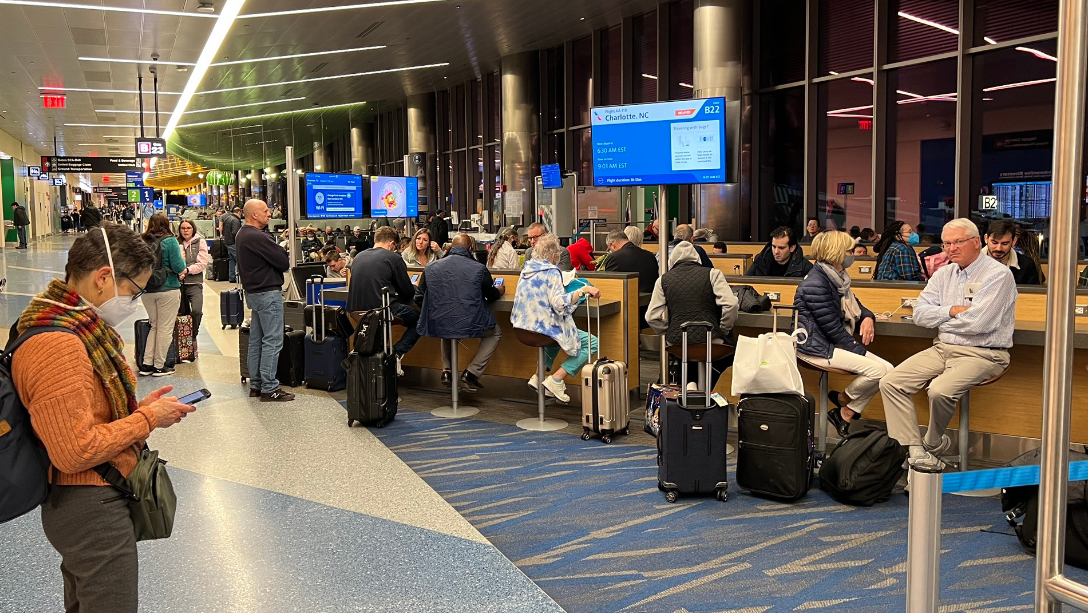The omicron variant has overtaken delta as the dominant strain of the coronavirus in Massachusetts, new data from the Broad Institute of MIT and Harvard shows.
Researchers at the Broad Institute estimate that the highly mutated variant has been dominant in Massachusetts since Dec. 17, less than two weeks after it was first detected in a fully vaccinated woman in Middlesex County.
WATCH ANYTIME FOR FREE
>Stream NBC10 Boston news for free, 24/7, wherever you are. |
The new analysis comes as the U.S. Centers for Disease Control and Prevention reported that omicron accounted for 73% of new infections last week, nearly a six-fold increase in omicron's share of U.S. infections in just seven days.
The omicron variant is well on its way to becoming the dominant strain in New England as well. Omicron accounted for 37.7% of the total COVID cases in Massachusetts, Connecticut, New Hampshire, Rhode Island, Maine and Vermont between Dec. 12 and Dec. 18, according an update from the CDC.
Get updates on what's happening in Boston to your inbox. Sign up for our >News Headlines newsletter.
For Massachusetts, that's a major jump from the week prior, when the mutation made up less than 2% of new cases.
State health officials released the first set of data on the omicron variant Tuesday, saying that 71 local omicron cases that have been sequenced were reported to the Department of Public Health.
That's a small fraction of the 5,531 new cases that were reported in Massachusetts on Tuesday alone. However, it can take more than a week to sequence the genome of a COVID test.
Local
In-depth news coverage of the Greater Boston Area.
From the data, a majority of the cases, 40, were in vaccinated people. But 31 were in vaccinated people, including five who had received booster shots.
Middlesex County had by far the most cases, 31, followed by Suffolk and Worcester counties, which each had 10.
Scientists at the Broad Institute tested 1,108 specimens collected in Massachusetts between Dec.13 through 16. They found that by Dec. 16, 45% of infections showed strong evidence of the omicron variant.
Based on the trends observed during this time period, the researchers estimate omicron exceeded 50% of cases in Massachusetts on Friday and is "rapidly increasing across the state."
"The fair thing to say is omicron is clearly going to become the most significant variant in Massachusetts, if it's not already," Gov. Charlie Baker said Tuesday.
Many important questions about omicron, like whether the variant is more contagious or deadly, remain unanswered.
Preliminary data from South Africa, where omicron was first detected, indicates the strain of the virus could cause less severe symptoms, according to Boston Medical Center's Dr. David Hamer.
Various new variants of COVID have swept across the globe since the start of the pandemic as the virus mutates.
Since the end of June, the delta variant has been the main version causing U.S. infections. As recently as the end of November, more than 99.5% of coronaviruses were delta, according to CDC data.
Scientists in Africa first sounded the alarm about omicron less than a month ago and on Nov. 26 the World Health Organization designated it as a “variant of concern." The mutant has since shown up in about 90 countries.



